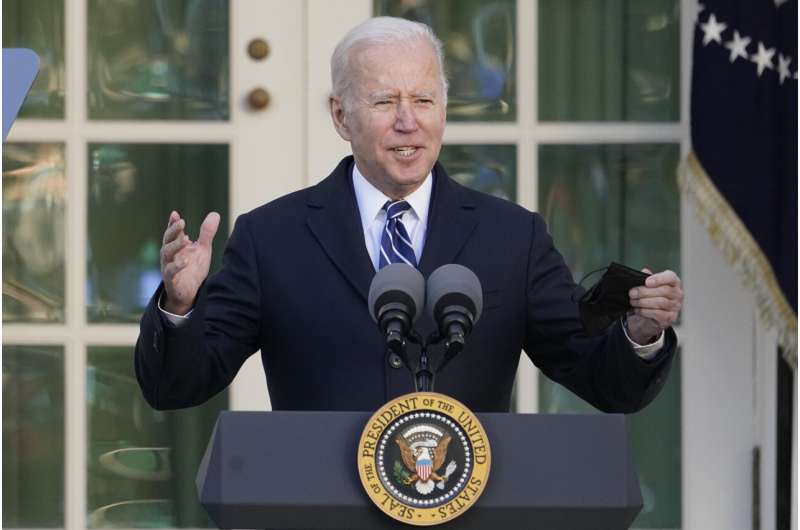
President Joe Biden’s administration is taking steps to expand availability of the life-saving COVID-19 antiviral treatment Paxlovid, as it seeks to reassure doctors that there is ample supply for people at high risk of severe illness or death from the virus.
Paxlovid, produced by Pfizer, was first approved in December. Supply of the regimen was initially very limited, but as COVID-19 cases across the country have fallen and manufacturing has increased it is now far more abundant. The White House is now moving to raise awareness of the pill and taking steps to make it easier to access.
The White House said Tuesday it is stepping up outreach to doctors, letting them know they shouldn’t think twice about prescribing the pill to eligible patients. It is also announcing that the drug will now be distributed directly to pharmacies, in addition to existing distribution channels run by states. That is expected to boost the number of sites from 20,000 to more than 30,000 next week and eventually to 40,000 locations.
The administration believes the pharmacy channel, which it used to boost availability of COVID-19 vaccines more than a year ago, will similarly make the antiviral pills more available to people.
“The bottom line is that we want to make this therapeutic available to all Americans,” Dr. Ashish Jha, the White House COVID-19 response coordinator, said Tuesday on CNN.
Paxlovid, when administered within five days of symptoms appearing, has been proven to bring about a 90% reduction in hospitalizations and deaths among patients most likely to get severe disease. About 350 Americans are now dying each day from the coronavirus, down from more than 2,600 during the height of the omicron wave earlier this year.
The U.S. has ordered enough supply of the pills for 20 million people, which is estimated to last for several more months. The administration has warned that subsequent deliveries are dependent on Congress approving additional COVID-19 response funding.
The Food and Drug Administration authorized Pfizer’s drug for adults and children age 12 or older with a positive COVID-19 test and early symptoms who face the highest risk of severe outcomes. That includes older people and those with conditions like obesity and heart disease, though the drug is not recommended for patients with severe kidney or liver problems.
Source: Read Full Article
